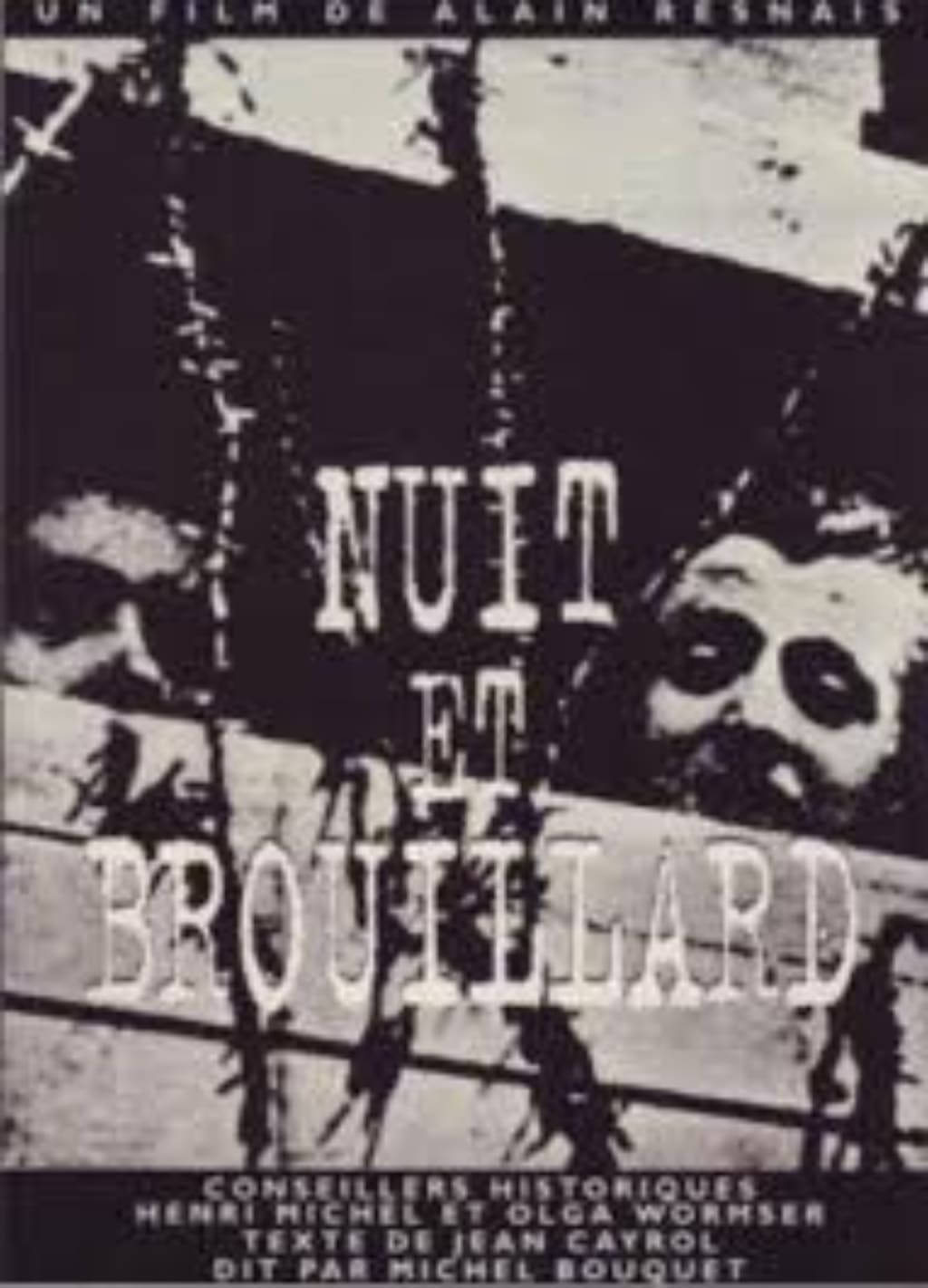
WARNING: This article examines the holocaust and, at times, details not the physical killing but the completely inappropriate attitudes surrounding it.
In a course on the history of modern German, I was asked to answer the difficult question of “Who is responsible?” for the holocaust. Being someone with a Jewish Godfamily, this was a difficult question, and subject for me. I decided to answer the question in a no nonsense way, without regard for the feelings of anyone. With a basis of legal definitions and class material, I tried to figure out who bears how much guilt. Here is that paper.
The Holocaust was perhaps the most disturbing event in modern history and is widely considered to be so. As you know, it was the mass killing of millions of Jewish people and others by German led forces during the second world war. This did not, however, take place only at concentration camps as is a common misconception. According to Ordinary Men by Holocaust scholar Christopher R. Browning, at least 38,000 Jewish people were gathered and shot point blank by reserve police battalion 101 alone (293).
With such an enormous number of innocent people murdered, the question of who is responsible must be asked. In addition, the different question of guilt and blame must be answered and guilt assigned to those, even posthumously, who are deserving. “Responsible” is defined by Merium Webster in three relevant ways. The first “liable to be called on to answer”. The second being “able to answer for one’s conduct and obligations” and/or “able to choose for oneself between right and wrong”. The third being “politically answerable”. As answer in legal context only means to plead guilty or not guilty (Legal Information Institute), responsible does not mean automatically mean guilty.
“Guilt” is revelantly defined by Merriam Webster as “the fact of having committed a breach of conduct especially violating law and involving a penalty” meaning that despite being answerable and aware of right and wrong, one is not guilty unless they have actively done something illegal or against existing policy. This person then is subject to penalty. With these definitions in mind, as well as the work of holocaust scholars, it can be determined that very few that were aware of the atrocities occurring do not bear responsibility for the deaths, more are directly guilty, the rest hold varying levels of responsibility without being fully guilty.
The only people who were aware of the killings and abuse who are not at all responsible are those who attempted to stop it. This does not include those who simply refused to participate as it is generally accepted as wrong to stand by as innocent people are killed. There were very few of these people despite many claiming they did not support the killings and chose not to participate. One clear example of this elite category is the Regional Commissioner in Slutsk, Heinrich Carl, who is named only by his position and signature of his last name in Ordinary Men, not including the index. He not only tried to stop the killing of Jewish craftsmen in Slutsk and their families but also wrote a complaint to his superior and intended to meet with him to further discuss it. He initially claimed that his objection was purely practical and economic but later stated “...I must to my greatest regret emphasize, is ast of all that it bordered on sadism.” and went on to describe the viscousness of the killings and even how families had been torn apart (Browning, 19-23). He knew that what was happening was wrong, attempted to ensure that those who perpetrated it were punished and that it did not occur again, at least not as brutally. Due to lost documentation, it is not clear how many others took similar action. Nevertheless, this is the only category out of those who were aware that is not responsible as they did their duty to try to end or lesson the atrocities.
Despite the fact that most if not all of those who are to blame have passed away, it is important to understand who they were. It is important that they are remembered as what they were, murderous criminals. Any person who killed an innocent civilian is, by the standards of war, somewhat guilty. Guilt, however, is not black and white as there are varying degrees.
Those who knowingly assisted bear the least severe guilt. This includes those who built the camps, those who supplied the trains, those who turned people in. This lesser guilt is not at all negligible. Perhaps the most known death of the holocaust is directly due to the people of this category. Anne Frank and her family were reported by a civilian, likely a neighbor (Campo, lecture). This category of people killed many.
Those who were actively killing but doing so on orders in situations where they were clearly the subordinate and under direct supervision bear some amount of guilt. These include the, according to Browning, eighty to ninety percent of Battalion 101 and likely similar proportions of other police units, who willingly round up and shot or sent to death camps millions of Jewish people (Browning, 184). A critic of Browning, Daniel Jonnah Goldhagen, claims that one man, possibly more who refused to kill in one instance, volunteered to kill later. This would mean that Browning’s numbers are lower than the number that did in fact kill. Of course, they were under orders, however, “Browning makes a crucial point that has been made before, but that continues to escape many: that not once in the history of the Holocaust was a German killed, sent to a concentration camp, or punished in any serious way for refusing to kill Jews.” (Goldhagen, 49). Moreover, the men of Police Battalion 101 were told by their commander Major Wilhelm Trapp that they did not have to directly participate in the killing (Goldhagen, 49). Their orders to kill were not forced, not absolute, not binding, not an obligation. However, Browning attributes their actions to “collective obligation” (185) and asserts that “Within virtually every social collective, the peer group exerts tremendous pressures on behavior and moral norms.” (189). Those in street gangs are held accountable for their actions despite these pressures and Battalion 101 was very much like a gang. Along with the description by Heinrich Carl, Goldhagen mentions brutal beatings and torture aside from the killing (51). He also includes a post war account from a Battalion member describing the men laughing at the brain splatter of a young boy and how he twitched to death. Goldhagen even writes of the account, “This kind of jocularity, this kind of boyish joy in the murder, was not a singular occurrence, never to be repeated” and the account stated that there were many similar moments (51). The men who killed so many in this fashion cannot be absolved due to what amounts to peer pressure, a force children are expected to combat.
Those in positions of power who gave orders they thought were acceptable do bear full guilt. A primary example of this category is Odilo Globocnik. He was told by Heinrich Himmler about Hitler’s desire to murder Jewish people all over Europe and was given the assignment to murder most of the Polish Jewish people. He was to run and fill extermination camps. This was a humongous task that he had no man power for (Browning, 49-50). Browning specifically says, “...Himmler gave Globocnik virtually nothing, and he had to improvise” (50). In actuality, Globocnik chose to improvise. He had an obvious excuse, but Browning makes no mention of him objecting. Rather, he approached his assignment with zeal and recruited men, killers, from multiple sources including the “eusthanasia program”, The SS of Lublin, and well suited, meaning anti-communist and anti-semetic, men from Prisoner of War camps. It should be noted that the prisoners, though bribed with food and better conditions, were willing (52). Some of the worst in the same group as Globocnik include Himmler (10), Major Weiss who even lied about his atrocities (12), and the leaders of Battalion 11 who proceeded despite Carl’s opposition (19-23). However, men who did nothing extraordinary but ordered and organized killings are, somewhat obviously guilty. They bear a medium level of guilt compared to the other guilty parties. They believed they were doing the right thing, or at least made no existing mention of it being wrong. Controversially, Hitler himself could be placed in this category. At the end of the day, those in this group purposefully murdered millions.
Those who were in power and were aware that the orders they were giving and what they were doing was cruel and yet pressed on bear extreme guilt. The primary example of this category is Major Wilhelm Trapp, commander of Battalion 101. Trapp received orders to have Battalion 101 round up all working age Jewish men and execute the rest of the Jewish population of Jozefow, a Polish village. He avoided the area where the shooting took place, was reported to have wept over the orders, and gave the men of the Battalion the option to not directly participate in the shooting as mentioned earlier (Browning, 55-58). Trapp can easily be seen as a good person in a bad situation. However, that is not the case, and is less so the case than it is for any of his subordinates. In a high leadership position, it was his duty to object, possibly by not giving the order to his men, or by attempting to speak directly with Globocnik who gave the order. There is no documentation of any such objection. In the best case scenario, he left it up to his men to object. However, he simply had not been able to bring himself to force them to participate. It must be remembered that refusing to shoot was not punished, and Carl’s attempt to stop or delay a similar action is not known to have been punished. Trapp knew the orders he was giving and the killings he was facilitating were wrong and he continued regardless. Sometime after the massacre, Trapp told his driver “If this Jewish business is ever avenged on earth, then may God have mercy on us Germans” (Browning, 58). This gives insight into Trapp’s thinking. It would not be unreasonable to say that Trapp was more concerned with what would become of him for breaking traditional rules about the treatment of women and children than he was about the actual victims themselves. Trapp led Battalion 101 into an action he deemed worthy of punishment by God.
Those who are responsible include those in police battalions, soldiers, and every day civilians. The best of those who fall in the categories between partial guilt and some responsibility stood idly by, the worst, killed when they felt they had no other options. The latter’s position in this category is questionable. As stated above, there was no real, tangible force behind the orders to execute Jewish people, especially for those under Trapp’s command. Still, of those under his command, at maximum, twenty percent chose not to directly participate.
Browning, as mentioned earlier, claims that those who chose to kill were under the control of their circumstances, especially peer pressure but also including submission to authority, the psychological impact of war, and ideological indoctrination (Browning, 184-187). If this truly was the case, if they felt they had no agency and/or had been made to think that the Jewish people deserved to die, they would be absolved of some or all guilt but not of all responsibility. Regardless, they contributed directly to genocide and could have all been called upon to answer.
Some of the men were indeed called upon to explain their actions to West German criminal justice system after the war. Goldhagen uses his knowledge of these testimonies to debunk the more forgiving of Browning’s assertions and use of evidence. He points out the Browning fails to detail how he evaluates the testimonies from men that were “living in a demacratic Germany and speaking to representatives of the criminal justice system… had powerful motivation to minimize their own complicity in the crimes” (Goldhagen, 50). Goldhagen’s objections to Browning’s assertions about motive are summarized, “Browning is undoubtedly right social psychological factors eased the Germans’ transformation into mass murderers. And he is right that such pressures are powerful. But such pressures cannot begin to account for the Germans’ behavior in all its facets” (52).
Aside from those directly involved, there were most definitely other groups aware of the atrocities who did nothing and are therefore not absolved of responsibility. The film Night and Fog examines this. Using footage of a concentration camp taken both after and during the horrible events that occurred there. After it forces the viewer to take in scenes of loading bodies into train cars and severed heads, it asks “who is responsible”. The answers to this question were throughout the film. In order to even build the concentration camps, a remarkably typical bidding process took place including bids from architects, construction companies, and the like. Information about what was being built was out there. Yet, not one company privy to this information is known to have come out in protest. Many competed to win the bid.
The Holocaust could not have happened without the willingness of commanders, civilians, and most of those in between. Being that it could not have happened without these people, they all are somewhat responsible. Stanch, punishable guilt is a different thing that usually requires direct participation or assistance as well as agency. It would have been a humongous undertaking to judge the guilt of and possibly punish every soldier, policeman, and civilian that bore responsibility for this atrocity. This does not mean that it is unimportant to understand the different levels of responsibility and guilt, and their qualifications. Understanding of these things is crucial to the understanding, prevention and handling of future genocides. Despite the fact that most of these men, if not all, are deceased, it still serves as an important example that scholars and diplomats would be remiss to not learn from.
Works Cited
“Answer.” Legal Information Institute, Legal Information Institute, 1992, www.law.cornell.edu/wex/answer.
Browning, Christopher R. Ordinary Men: Reserve Police Battalion 101 and the Final Solution in Poland. Harper Perennial , 2017.
Goldhagen, Daniel Jonah. “The Evil of Banality.” Review of Ordinary Men.
“Guilt.” Merriam-Webster, Merriam-Webster, www.merriam-webster.com/dictionary/guilt.
“Responsible.” Merriam-Webster, Merriam-Webster, www.merriam-webster.com/dictionary/responsible.
About the Creator
Jade Neal
I'm a performer, diplomacy student, and chronic illness survivor. I'm here to share my story and knowledge in order to help someone out or provide entertainment.






Comments
There are no comments for this story
Be the first to respond and start the conversation.